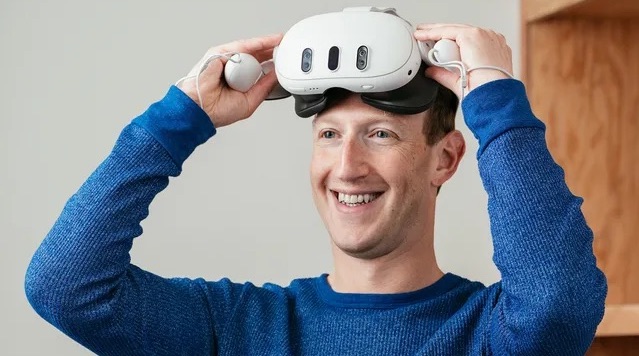Meta is reportedly back on its wearables bit: this time it wants to stick cameras on earbuds for AI
You'll never guess what the codename for the project is.

Tech companies are racing to stuff object and speech recognition into their latest devices, from laptops and phones to weird wearables. Zuckerberg, not one to shy away from a trend in the tech industry, is reportedly also keen to see Meta produce its own AI-powered wearable: intelligent earbuds, or maybe headphones.
The project, codenamed 'Camerabuds', would see Meta do the unthinkable… combine earbuds with cameras.
The cameras would supposedly come in handy for identifying objects—this data could then be integrated and used with other smart systems—and the earbuds could function to translate foreign languages on the fly. A team working on the project has already presented Zuckerberg with some concepts. However, the Meta CEO isn't entirely sold on the designs he's been shown so far, The Information reports, citing three current Meta employees.
This wouldn't be the first time we've heard of devices capable of offering transcription or translation services. They could be pretty great when it comes to accessibility uses, too. Though we're beginning to hear a lot more about these sorts of features for a wider audience now that 'AI' can be slapped on the box.
Meta, specifically, does not surprise with its desire to get into the AI-powered wearables game. With billions of dollars invested into its Reality Labs division and a co-credit in creating smart glasses with Ray-Ban, this is exactly the sort of project we should expect from a company constantly chasing new markets to expand into.
Early AI-powered wearables have so far gone down like a tonne of bricks, often panned by reviewers. Though clearly there's some expectation of a huge boon for devices such as these, providing some AI firms can make some features worth hanging them off. I dare say it'll need to be a lot more than they currently can offer to convince users to carry another device on their person, and keep charged, alongside their mobile phone.

What is artificial general intelligence?: We dive into the lingo of AI and what the terms actually mean.
Meta isn't the only company looking to image recognition as the next step for AI. OpenAI just announced its newly updated AI model, GPT-4o, and introduced video, audio and text recognition improvements. Looks like this sort of functionality is the new battleground for companies hoping to find a bigger market for AI-powered tools. Though it also announced new voice assistant functionality, which I have to admit I found extremely weird in action.
Keep up to date with the most important stories and the best deals, as picked by the PC Gamer team.
But while the general Silicon Valley type gets all hot under the collar for object recognition and translation, I'm left wondering if there really is a benefit to the average gamer in all of this. Anyone have any ideas about what might be a genuinely good use for a wearable AI gizmo for PC gaming? I've already apps on my phone gathering dust for half of my PC's components.

Jacob earned his first byline writing for his own tech blog. From there, he graduated to professionally breaking things as hardware writer at PCGamesN, and would go on to run the team as hardware editor. He joined PC Gamer's top staff as senior hardware editor before becoming managing editor of the hardware team, and you'll now find him reporting on the latest developments in the technology and gaming industries and testing the newest PC components.

